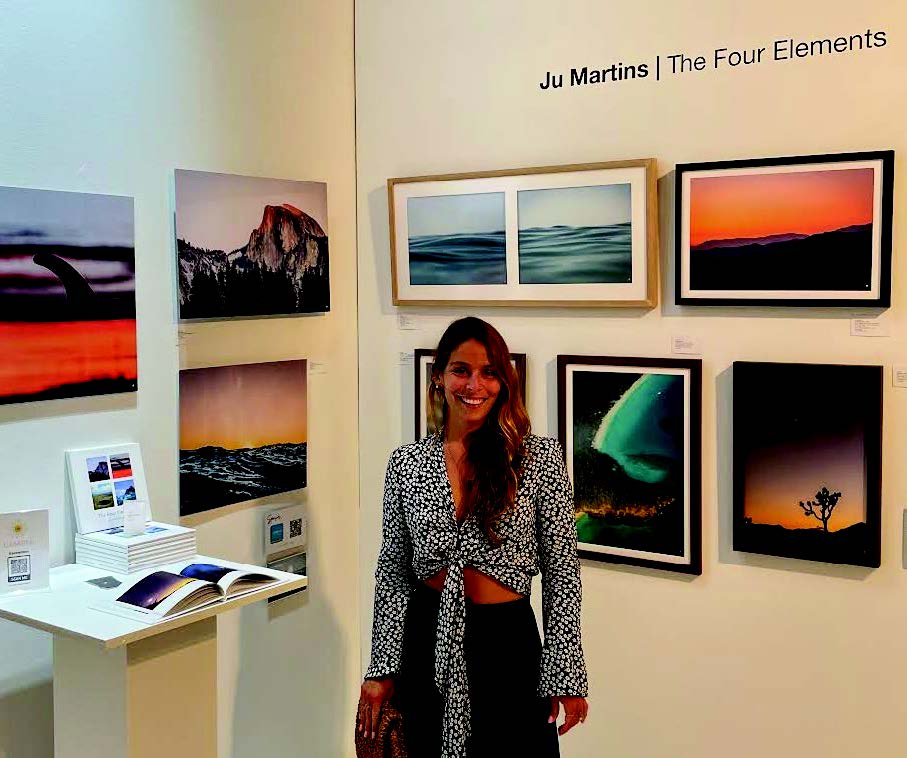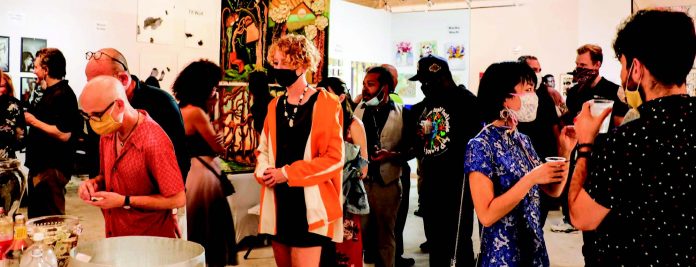After more than a year, art fairs are finally back in New York City. This fall sees the return of the Armory Show, which will look a little different thanks to a narrower lineup. Meanwhile, firms like Independent and newcomers like Future Fair are also opening, ensuring there will be plenty of work on display for New York’s art-hungry masses.
Earlier this month, the self-proclaimed “Anti-Fair for Independent Artists” Clio presented an international selection from 52 independent artists. The fair also featured a unique program called “Canary in the Coal Mine: The People’s Art of Protest” featuring artists from around the world curated by Garon Willie.
According to founder Alessandro Berni, the art fair project was born on the fifth floor of Chelsea’s Wolf Building in 2014. By 2018, it had outgrown its original digs and graduated to a street-level space located in a contemporary building located at 550 West 29th Street. The move has helped with greater exposure, more visitors, and a higher percentage of sales. Basically, more of everything than the first editions.
“In New York City, government mandates have been lifted for events with under five thousand attendees. We implemented some protocols for the comfort of our community such as proof of vaccination for entrance,” he continues.
For Clio’s eleventh edition, its curatorial board has prepared a section of works dedicated to art being an instrument of protest. One of the artists exhibited was Ju Martins, who came from California to participate in the fair. “It was Clio Art that chose me! They got in touch through the art gallery. I thought NY could be an exciting opportunity to test how people would react to my vision of color and nature.”
It is the second time that Ju Martins has participated in an American art fair and considers it essential for visibility by the public and a greater network of art galleries, curators, and enthusiasts. Traveling from San Diego is a big investment. It makes sense for some artists to be represented at the fair by a sales agent or gallery. It is also necessary to plan accordingly Ju Martins says, if the artist wants to stand out and have his or her own space, it’s not cheap. An 8ft wide space costs $2K on average, and you are responsible for building your booth.
However, there are packages for joint exhibitions. It is also worth trying to get sponsors for printing or supplying art material. Working together minimizes costs and leads to more exposure to the work.
“My focus is to get an agent or gallery representing me. Without a doubt, there are more opportunities to exhibit at a smaller fair, and with artists as talented as those who were at Clio Art!” says the artist.
Martin started photography as a hobby at the age of 15. After spending seven years traveling the world as director of photography on travel and sports programs for a TV channel in Brazil, she decided to move to California in 2017.
“When I arrived in the US, I knew it would not be easy to start over, as I left Brazil at the height of my career. Nevertheless, this beginning has allowed me to reinvent myself and understand my purpose with photography.”
She says her photographic style has movement through techniques, framing, tones, and movement – mostly done outdoors. Her biggest influences are Sebastião Salgado and Vik Muniz.

Ju Martins one of Clio’s featured artist


